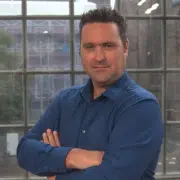What can be done about disinformation? Is climate change our greatest global ánd national security threat? What do we do if China attacks Taiwan? Is the West lagging when it comes to hypersonic weapons? Find out more in the new HCSS Digest!
Disinformation
On October 25, HCSS hosted a virtual panel discussion on “Advancing Norms to Counter Disinformation: From Formulation to Implementation”, with a video address from Věra Jourová, VP of the European Commission for Values and Transparency. This virtual event convened European stakeholders from government, industry and civil society to launch the new HCSS report on the role of norms to counter disinformation, including Alexander Klimburg, Director of the HCSS Cyber Policy and Resilience program, and was moderated by strategic analyst Louk Faesen.
Disinformation and ‘fake news’ are as old as the hills. Yet, with Brexit and the election of Trump as US president, it really became evident what impact the spread of disinformation can have on society. More than five years later, nothing seems to have changed: during the corona pandemic, Russia and China have done their very best to spread falsehoods about the virus. What can we do about it? Listen to the latest episode of our BNR podcast De Strateeg, with HCSS strategic analyst Louk Faesen and MEP Bart Groothuis.
Climate Change and COP26
Climate change has gone from being a fringe issue to a global security priority. On November 4, in parallel with COP26, the UN Climate Change Conference taking place in Glasgow from 29 Oct. to 12 Nov., HCSS will organize an online Climate Security Game.
Is climate change our greatest global and national security threat? In advance of COP26, join HCSS senior strategic analyst Laura Birkman at the Azure Forum for Contemporary Security Strategy on 28 October at 12:30-14:00 IST for a virtual roundtable.
Arms Control
The US – and consequently the West – are lagging behind in the field of hypersonic weapons, HCSS senior strategic analyst Paul van Hooft comments in newspaper NRC. “Conventional weapons have become more dangerous: you now have a category of advanced conventional weapons that can perform tasks that used to require nuclear weapons.”
In the arms race with the United States, China is slowly getting closer. New technology threatens to turn conventional military conflicts into a nuclear war. This must be prevented at all costs, write HCSS strategic analysts Lotje Boswinkel and Paul van Hooft in an opinion piece for EW Podium.
Taiwan
What if China attacks Taiwan and Pres. Biden sends the U.S. Fleet to back Taipei? Do the Dutch, French, and Germans follow? We need to think about the answer to those questions today, write HCSS analyst Joris Teer and HCSS Director of Research Tim Sweijs in an article for The Diplomat: the decisions that The Hague, Paris, and Berlin take in the event of a Chinese attack on Taiwan are likely to determine Europe’s place in the world for decades to come.
This Friday, strategic analyst Joris Teer will be the guest on the new episode of the BNR Podcast Boekestijn en De Wijk, where he will discuss the latest developments regarding Taiwan, as well as his recent article in NRC: What do we do if China attacks Taiwan?
Podcasts
The radical right bangs on the doors of the Élisée Palace. Is Eric Zemmour the French Trump? In their latest BNR podcast, Boekestijn and De Wijk talk to historian and France specialist Niek Pas about the radical publicist and possible presidential candidate.
What is Iran’s role in the Middle East? How real is the threat from Tehran to Jerusalem? From Studio HCSS, Han ten Broeke sheds light on these and other questions in the third episode of Mizrach, the CIDI podcast.
Energy
On the eve of the Glasgow climate summit, Europe’s largest pension fund ABP is withdrawing from the oil and gas sector. “This decision does nothing at all for the demand for oil and gas – nor the emission of greenhouse gases,” HCSS energy specialist Jilles van den Beukel analyzed, De Volkskrant reported: If Shell limits its oil production under investor pressure, it may be taken over by OPEC countries and Russia, increasing their power and ultimately raising energy prices.
Should Europe intervene in the energy market to reduce high energy bill prices? Jilles van den Beukel spoke about it at Dit Is De Dag on NPO Radio 1.
The departure of some of the shareholders could – in the long run – change the composition of the owners of Shell, to include more short-term oriented hedge funds and shareholders from the Middle East and China, Jilles van den Beukel commented in het Financieele Dagblad. And that, in turn, could have negative consequences for the implementation of the climate goals.
From the Covid вирус to Drones
Has Russia lost its grip on corona? Due to record deaths and infections from covid, Putin has announced a new lockdown. HCSS Russia expert Helga Salemon explains why on Radio 1’s Met Het Oog Op Morgen.
In an perilous world, now and in the future, the major operational advantages of unmanned systems have an important value in the military toolbox, writes HCSS subject matter expert Patrick Bolder in his new column, “No Security Without Drones”.
Vacancy
Do you have a love for data, numbers and quantitative research? Then the HCSS Datalab Internship might just be what you need – apply now and join a team of highly skilled and motivated data scientists!


